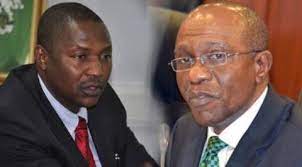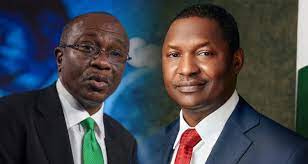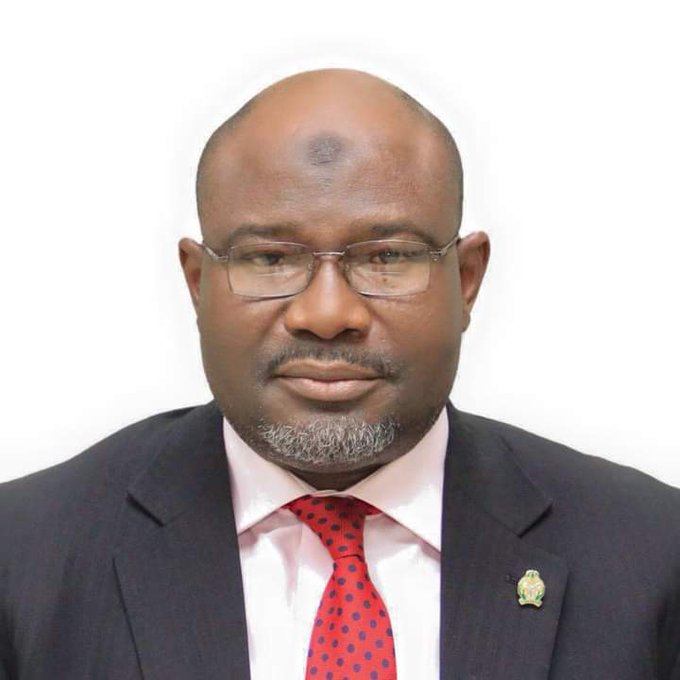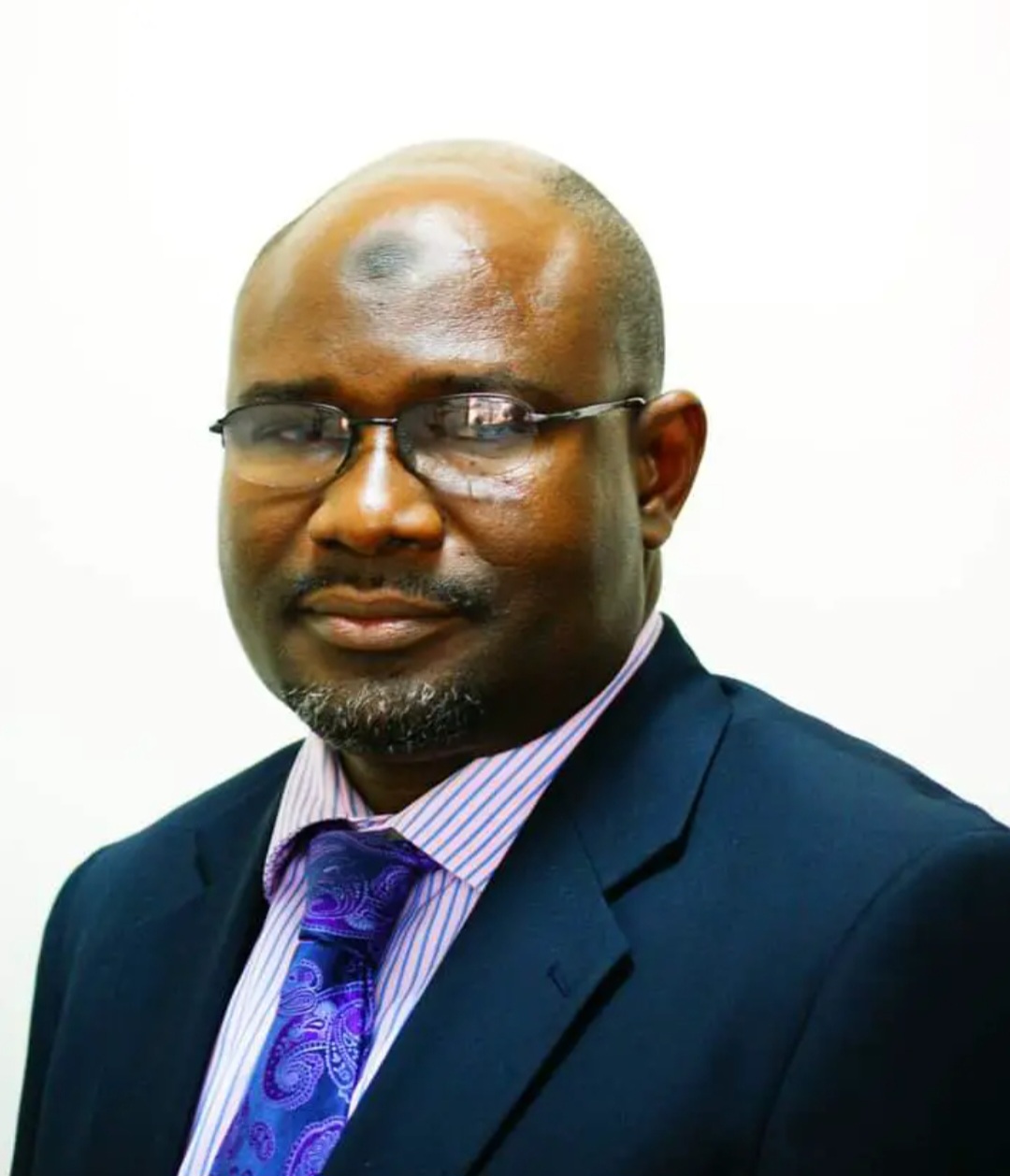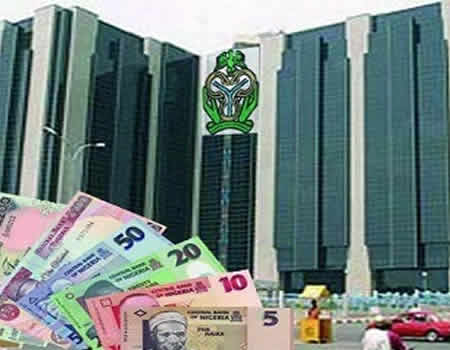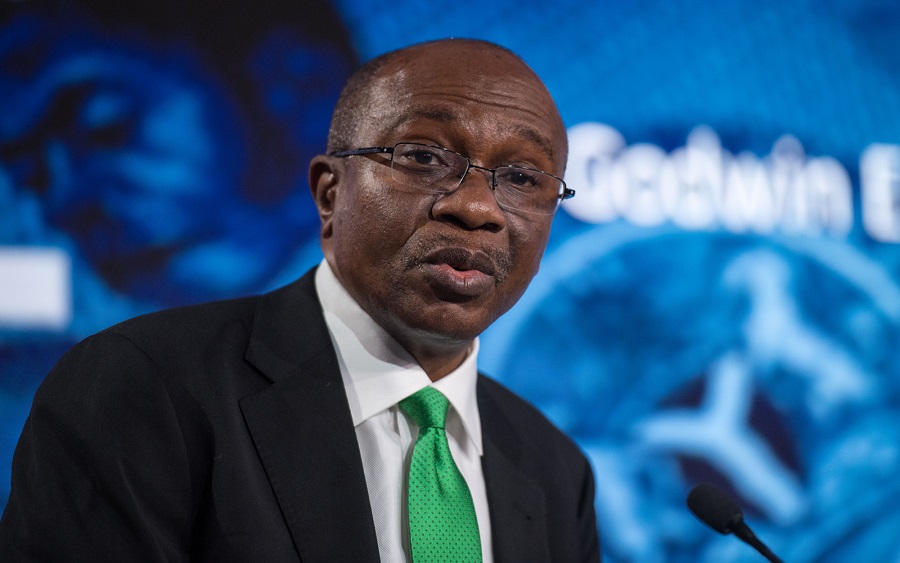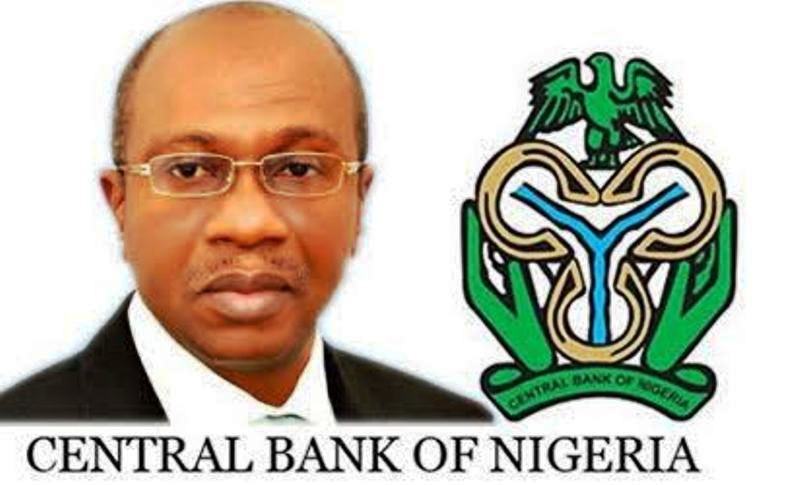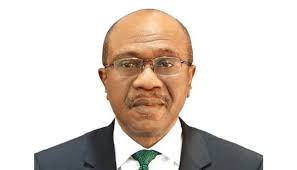With the recent discovery of caches of the redesigned naira notes with unbroken wrappers inside Automated Teller Machines,ATMs making it impossible for cash to be dispensed and revelations that stacks of redesigned naira notes are hidden behind old ones in bank vaults to prevent detection,it is a no brainer to reach the conclusion that Deposit Money Banks,DMBs are not working in synergy with the Central Bank of Nigeria,CBN for the desired delivery of smooth cut-over from old to the redesigned naira notes regime.
And the suspected conspiracy of banks to sabotage the CBN in its Naira redesign policy may not be a deliberate plan of the umbrella body of bankers known as Bankers Committee which comprises of Chief Executive Officers ,CEOs of banks which meets with the leadership of CBN regularly.
Rather,from my understanding of the issues,it is likely to be a perfidy being perpetrated by a very corrupt crop of people in the middle level cadre in the banking sub sector.
To provide better insights and in order to drive my point home ,allow me first of all reference other perfidies that pervade the banking sector in Nigeria of which the same category of bank workers are the agent provocateur.
Before the current redesigned naira notes saga,the biggest scandal that the CBN is associated with and which attracts the most odium to it is the opaque and complex process of allocating and disbursing Foreign Exchange, FX to those who need it.
In the past,the scarcity of FX for manufacturers to import raw materials;the inability of those who need it to pay medical bills for healthcare abroad to obtain it; and the distress suffered by students that need FX to settle their school fees amongst others had been like magnetizing force for opprobrium to the CBN that is roundly blamed for the inaccessibility of FX to a vast majority of Nigerians.
But as the events surrounding the current hoarding of the redesigned naira notes have revealed,we need not look any further for the culprit in the scarcity of FX than the rank and file of bankers.
In my reckoning,the unavailability of FX to a vast majority of Nigerians is actually not so much about the lack of it,but it is in part caused by the inefficiencies in it’s distribution arising from the deliberate actions that bankers take to thwart the process of getting FX across to the end users.
They do so by introducing all manners of bottlenecks that border on or amount to the type of unwholesome outcome that the hoarding of redesigned naira has just exposed.
To cure the seemingly intractable FX malaise in the country,the CBN had made several attempts in the past to move the function from Bureau-De-Change to banks,back to the CBN and then back to banks again.
Yet,the FX supply and demand activity in our country has remained an un-transparent and a very painful and distressing experience to a vast majority of Nigerians.
Currently the function of FX disbursement to those in need of it reside in the banks and the process has even gone online. Yet,obtaining it for even Personal Travel Allowance and Business Travel Allowance,PTA/BTA is still a nightmare till date.
After filling out the forms online and meeting all the conditions for obtaining a mere $4000/5000,your bank manager would lie that approval is being awaited from CBN. A few days thereafter,you are informed that CBN has denied approval.
That is a big fat lie.
It is the bank that has used your application to receive the allocation from the CBN.
But instead of availing you of the FX by disbursing the cash to you,it decides to keep the hard currency which is ultimately sold to hawkers who offload the cash into the market at black market rate.
It is such practices that are creating distortions in the economy and why the IMF and World have been urging the CBN to close the second FX window to reduce the market for buying and selling FX to
a single one.
On the occasions whereby your bank manager decides to be a bit kind,you are paid half of the $5000/$4000 allocated by the CBN which is $2500/ 2000 while the bank or the regional or branch manager keeps other half.
It is the aggregate of the half of the approved sum for the applicant but of which only half is disbursed that are sold in the black market to manufacturers and importers of finished goods who desperately need the FX to import raw materials and food items because Nigeria remains a net importer of food even it has vast fertile land for agriculture.
The above is the type of heist that has been going on in the FX market and the CBN is either turning a blind eye or has not been monitoring the transactions perhaps due to lack of capacity,negligence or both.
As a direct consequence,Nigerians have been suffering untold hardships sometimes in foreign lands where they are detained in hospitals and hotels or thrown out of school for their inability to settle bills owing to lack of FX.
To a large extent, it is the high cost of the fraudulently obtained FX sold to importers by crooked bank manager that is fueling inflation in our country.
Since the entrepreneurs have to make profit ,the high cost of obtaining FX is passed via inflated price of goods and services to the already over burdened consumers. That is why a bag of rice that sold for N12,000 in 2015 currently sells for N50,000.
What this simple street economics demonstrates is that the astronomically high rate of 21% inflation in the economy today has its origin in the roguish activities of middle level bankers catalogued above.
And it is the current exposure of the ignoble role of bankers as the ones stopping the redesigned naira from getting to the end users that has revealed that it is the unscrupulous bankers that are partly responsible for the economic perils besetting the critical mass of our country men and women.
That is not discounting the role of corrupt public servants who are the root of all the evils afflicting our country.
As the nefarious activities of the category of bankers earlier referenced as clogs in the wheel of progress of our country has now been identified,the malfeasance needs to be addressed once and for all with the utmost urgency that it deserves.
Readers are likely to wonder why the lack of access to FX by a vast majority of Nigerians who need it as highlighted above has not attained the type of crisis dimension that the current naira contrived shortage has precipitated even though it has been going on forever.
The reason is simply because only about 10% of Nigerians are active users of FX.
That is quite unlike the situation whereby 100% of Nigerians need naira to survive in the manner that humans need air to remain alive but they are currently being denied access to it,which is the driving force for the mayhem in banking halls by the masses who are at their wits end.
And the calamity in the financial services sector is an existential threat that could result in the asphyxiation of the economy and unhinging of our country which is currently tottering on the brinks of a total collapse owing to a debilitating national debt in excess of N77 trillion.
That in a nutshell is why remedial actions need to be taken urgently and rapidly.
In fact,the current CBN governor Mr Godwin Emefiele had been accused by an ex-CBN governor of enriching a few powerful people in the corridors of power by allocating them FX at official rate which they ‘round trip’ or with which they engage in arbitrage to gain billions of naira by reselling the same allocations in the black market.
Mr Emefiele now has the opportunity to redeem his image by introducing more transparency into FX distribution system in Nigeria.
Even though the pre existing nefarious activities in the FX market and the current redesigned naira hoarding have caused the CBN and its governor, Mr Emefiele great pains,the apex financial regulatory authority has done little or nothing to aggressively address the identified policy gap and if you like,failure.
Having exposed the roguery being carried out by some bankers and given the precarious situation in the country right now,the CBN governor and his team of security operatives that have swung into action to bring culprits to book by going round the banks examining the books, should go all the way to clean up the proverbial Augean stable,no matter whose ox is gored.
That is the irreducible minimum action required to regain the confidence of Nigerians by the CBN and FGN.
My point is that supervision and surveillance activities by the joint task force with security agencies has to be sustained.
And consultants comprising of ex-bank inspectors who are skilled in forensic auditing as well as experienced ex-law enforcement officers should be engaged by CBN after the current exercise to continue doing the job.
That is another way of creating private sector jobs for Nigerians and ensuring that the criminal elements in the banks do not go rogue again.
For instance,Bank of Industry,BoI has a gamut of consultants comprising mainly of ex-staff that render services to businesses that want to obtain loans from it.
It took NNPC the wisdom of engaging a former niger delta militant- Tompolo to carry out crude oil pipeline surveillance for the syndicate stealing our crude oil to be bursted.
The CBN needs to adopt a similar measure to tame the monster of graft that has seized the banking sector.
It is note worthy that the complicated process of FX transaction in the CBN which currently has two windows-official and parallel market rates is reminiscent of the import license days in Nigeria in the 1980s wherein a mere possession of import license made several people that had access to those in authority billionaires without lifting their fingers to do any work,but by having access to corrupt government officials empowered to issue the licenses.
Following the continuous outcry by concerned Nigerians,the anomaly was corrected .
The same can be achieved with FX transactions if enough efforts and critical thinking are invested by the CBN and FGN in trying to get it right.
If readers do not mind my brief digression one more time from the naira redesign issue and the pains it is causing the hoi poloi ,it may be recalled that the same policy failure was prevalent in the oil/gas sector whereby oil blocks were randomly allocated to individuals and organizations with contacts in the corridors of power without following set down rules.
That impropriety made a few Nigerians multi billionaires after they sold off their arbitrarily allocated oil blocks or jointly developed them with foreign partners,even as the rest of Nigerians who are joint owners of the oil/gas assets,(especially host communities) were left to suffer the consequences of associated environmental hazards from oil/gas exploration.
But that arbitrariness is now a thing of the past that happened during military era as oil blocks are currently only allocated via competitive bidding.
What the scenario described above demonstrates is that our country had been bedeviled by inequitable and inefficient distribution of our common wealth or resources.
And the culprit is not lack of laws or rules, but the none or weak enforcement of applicable laws of the land which are designed to prevent the abuse of laid down procedures and processes.
It it is when the laws or rules are being broken without consequences to the violators as has been the case with those engaging in rounding tripping of FX and the redesigned naira with huge profits and who are being allowed to get away with the crime,that the economy suffers and Nigerians sink further in misery.
Graft which has made our country take over from India as the poverty capital of the world must not be allowed to thrive or persist.
In any case ,with the contraventions of the rules or laws pervading the whole gamut of public and private sectors in our country,the masses are definitely at their wits end.
And if the melodramas that unfolded in banking halls last week,ranging from women and men stripping themselves naked in expression of their desperate need for money is anything to go by, it may not take too long for Nigerians to say enough is enough.
In fact,the general elections coming up in in less than three weeks is an opportunity for Nigerians to pay back their leaders that have dragged them into financial mess currently suffocating the hapless masses by voting them out of power.
For so long,it has been wrongly believed that corruption only prevails in the public sector and the private sector is corruption free.
That is a fallacy because the type of perfidy that the Naira redesign crises has exposed is a serious form of graft in the banks which are private sector concerns that should not be glossed over.
But since corruption in the private sector is not the primary focus of this discourse,l will dwell further on it in subsequent media interventions.
For now,let us concentrate on the current case of hoarding the redesigned naira by the rank and file of the banking sector.
Apparently, not much has been done by the relevant authorities to get to the root cause of the very unpalatable experience of FX users in the hands of bankers with a view to relieving them of the hardships that they go through to obtain it.
Hence our country is in the current bind with naira similarly being hoarded by bankers.
In my view,the organized private sector, particularly Manufacturers Association of Nigerian,MAN has not done enough in that respect to compel CBN to provide less pernicious and more transparent ways to gaining access to FX from the apex bank.
For instance, there is nothing wrong with the CBN setting up a committee to give direction in the management of FX disbursement with a representative each from MAN,Association of Universities Unions,ASUU and Nigerian Union of Journalists,NUJ or Guild of Editors just to give the process a bit of transparency and restore public confidence which has taken flight from the CBN.
The Nigerian extractive industry did it and it gave the agency in charge of accountability in the oil /gas sector more credibility.
Probably,if proper supervision and thorough investigations had been carried out by perhaps the CBN,Bankers Committee,Chartered Institute of Bankers,ClBN and even Ministry of Finance Incorporated (MoFl) (recently inaugurated) maybe the virus of corruption that seems to have become interred in the marrows of bankers might have been eliminated by now.
And the current corrupt actions of hoarding the redesigned naira currencies might not have arisen.
To be clear ,when l am talking about bankers being the agent provocateurs in the hoarding of the redesigned currencies,l am not referring to the top executives like Managing or Executive Directors.
But l am focusing on middle level managers like heads of branches and those incharge of operations and involved in cash management as well as regional heads too.
Frankly,I recognize that this perspective is not a main stream one as most commentators are more inclined towards blaming Federal Government of Nigeria , FGN and CBN for changing the design of the naira and the timing of it which they believe is wrong.
But l prefer to take a deeper dive on the crisis in the financial services sector by leveraging a different template for assessing the issues surrounding the exercise from a more broad and wholistic Point of View,POV.
In the first instance,l agree with the reasons that the CBN has laid out for embarking on the redesign of the higher denominations -N100,N200,N500 and N1,000 bills which are largely altruistic despite the negative intentions which those that oppose it are insinuating.
According to Emefiele, “currency management by CBN has
faced a number of challenges for some time now. This includes: Significant
hoarding of banknotes by members of the public, with statistics showing that over
80% of currency in circulation are outside the vaults of Deposit money banks. At
the end of September 2022, available data at the CBN indicate that N2.73 trillion
out of the N3.23 trillion currency in circulation, was outside the vaults of Deposit money banks across the country; and supposedly held by the public. This is an indicative that Nigerians have not fully accepted the cashless policy of the Central Bank”.
That is on top of the need to make Nigeria a cashless economy and combat kidnappers that receive ransom payments in cash and who have been stockpiling them in their hideouts,as such keeping a lot of cash outside the banking system.
The naira redesign which Emefiele says has as at 31 January already compelled a return of nearly N2 trillion of the N3.2 trillion believed to have been outside the system,validates the need to take the action.
In other words,the exercise is on track to realizing the set objective,if 75% success has already been achieved.
The United Kingdom which is home to London, one of the foremost financial capitals of the world and a country which is our former colonizer,as well as India,the largest democracy in the world also recently redesigned or replaced their currencies with new ones.
Like Nigerians,citizens of both countries also suffered huge inconveniences-particularly India.
Allow me share a portion of a report of the experience of someone from one of the aforementioned jurisdictions when the high denominations of their currencies were changed.
A perspective on the outcome of the demonetization policy in India by Deepa Khrishnan who published her report in strategy + business(a publication of PWC) is enlightening but it was written soon after the exercise and some of her conclusions have been overtaken by events.
Khrushnan is not only a researcher, she is also an entrepreneur and teaches at S.P Jain Institute of Management and Research in Mumbai,lndia.
Here we go:
“On the night of Nov. 8, 2016, there was a surprise announcement on Indian television. In a live telecast to the nation, Prime Minister Narendra Modi declared that the country’s two highest-denomination currency notes (Rs 1,000 and Rs 500) would be withdrawn immediately from the market. The plan, termed demonetization by the press, was planned in secrecy and announced dramatically, as Modi’s masterstroke against black money.
“As economic experiments go, it was a big, bold move. There was no precedent, anywhere in the world, for a sudden economic shock of this scale. The withdrawn notes, amounting to US$320 billion at the time, represented 86 percent of the total currency value in circulation in India. By making the notes worthless almost overnight, the government hoped to destroy large piles of black money hidden away by tax evaders. In addition, the government claimed the plan would strike a major blow against corruption and counterfeiting and would kick-start India’s transition into a digital, cashless world. In a country with a huge informal economy, dependent on cash transactions, demonetization was a big political gamble, too”.
That is not all.
The report was concluded with a dire warning for other countries that may be contemplating currency change or demonetization as it was characterized in India.
According to Krishnan who is also a social worker:
“The immediate fallout was chaos, as the country scrambled to cope. There was a rush at banks and ATMs to exchange old notes and withdraw new currency. Queues at banks grew; many people suffered, especially the poor, who had no access to credit cards or mobile wallets; and dozens of deaths resulting from the crisis were reported.
“Two years later, the dust has settled, and it has become obvious that demonetization was not the resounding success the government expected it to be. India’s black money problem has not gone away. The economy has taken a beating, huge financial losses have been incurred, and the marginalized poor, least able to withstand adversity, have been negatively affected. There have been some gains in tax collections, and the country has progressed toward digital payments, but these advances could have been achieved through other, less drastic means.
“For countries tackling black money or promoting a cashless economy, India’s experience with demonetization provides rich lessons. Although the long-term social, economic, and political consequences of demonetization are still playing out in India, answers to many complex questions are now apparent”.
Dear readers, you would agree with me that the current events in Nigeria echo the Indian experience in 2016 in many ways.
Apparently, the Nigerian authorities did not learn from the Indians.
But even if they did,the motive in Nigeria is slightly different because there is also the mission of stalling buying of votes by unscrupulous politicians that had allegedly been stockpiling money to snatch victory at the polls by hook or crook.
In the United Kingdom, UK £20 and £50 notes also seized to be legal tender from the end of September last year as a counter measure to counterfeiting which is one of the reasons that Mr Emefiele advanced for the redesign of the higher denomination currencies-N100, N200, N500, N1000.
That means currency redesign is not peculiar to Nigeria and the motive is altruistic.
Obviously,the exercise in the UK was not as chaotic as it was in India and it was definitely not as bad as the experience in Nigeria is turning out.
Nevertheless,one thing that is clear is that the motive for demonization or currency redesign in all the three countries of India, Uk and Nigeria appear to be the same, except the fact that ours is happening close to a consequential general election and it is also aimed at reining in kidnapping and pulling from the dark world the illicit money used for ransom payments.
So,the fact that the socioeconomic, cultural and political dynamics in the three countries are different makes the case of Nigeria even more unique.
And even if the other goals of eliminating counterfeiting,making our economy cashless and pulling money from the black market into the banking system are not achieved in our clime,the alleged intention of starving politicians of funds with which they could have subverted the will of the people via votes buying as alleged in some quarters seem to be coming to fruition as the inability of political demagogues to draw cash from across the counter in banks and ATMs has thwarted the unholy intentions of unscrupulous politicians.
At least the presidential candidate of the All Progressives Congress,APC, Asiwaju Bola Tinubu has alleged that the starving of the economy of cash is aimed at ruining his chance at winning the 25 February presidential polls,vowing that he would win anyway. And Nasir El Rufai,kaduna state governor has also weighed in by stating that the naira redesign at this point in time is in bad taste and against the interest of the ruling APC and laid the blame on Aso Rock Villa ‘mafia’.
His allegations were validated by the First Lady of Nigeria,Mrs Aisha Buhari who shares El Rufai’s sentiments.
Obviously, the Naira redesign policy has become a political talking point with APC and PDP campaigns exchanging vitriolic on the matter.
With APC Presidential standard bearer and party accusing elements in Aso Rock Villa ,the presidential seat of power of sabotage,there appears to be a situation of ‘a house divided can not stand’ in the ruling party’s stable.
Contrary to the reported APC resentment towards Aso Rock Villa and president Buhari ,the PDP and her presidential candidate, Wazirin Atiku Abubakar had (ahead of all the other candidates) actually made a passionate appeal to president Buhari and CBN to extend the deadline from 31 January to ease the suffering of the critical mass of Nigerians who the exercise had severely handicapped.
He made the plea alongside similar requests by legislators and other well meaning Nigerian leaders.
And their plea was graciously granted by president Buhari and Emefiele who extended the deadline by ten (10) days- 10 February which is exactly 15 days to 25 February D-Day for Presidential election.
Below is how the former vice president and PDP flag bearer after the extension of the deadline from 31 January to 10 February consoled and counseled long suffering Nigerians:
“The cashless policy and reduction of the cash in circulation has many advantages and every patriotic Nigerian should support the CBN on this. It will help to reduce the flow of illicit funds in our economy. It will help to defeat the funding of terrorism and deter the circulation of drug money in our economy. It will help our fight against corruption.”
All things being equal,the ten (10) days respite would yield significant benefits to the distressed people of Nigeria who can not wait to put the current miserable experience behind them as soon as PDP and her presidential standard bearer berth in Aso Rock Villa after 25 February polls.
Although,the banking sector is one of the most regulated all over the world,the focus of the regulators in Nigeria appear to be mainly on auditing of accounts to avoid staff defrauding the banks.
There seems to be less focus on compliance with BOFID/BOFIA by the banks.
Invariably,not much had been done about monitoring other activities of the banks including Automated Teller Machines, ATMs and mobile money agents like Point Of Sale,P.O.S operators etc.
Recently,there was a report of the murder of a P.O.S operator arising from schemes that went sour between syndicates or rackets in the banking sector.
And l am yet to read or hear of a thorough investigation into the matter with a view to unraveling and and eliminating the cause or causes of the crime if it is established that bankers are engaging in unwholesome practices that are inimical to the best interest of Nigerian masses.
The fact that the thieving managers are not stealing bank’s money directly but robbing members of the public via all manners of antics does not justify bank executives turning blind eyes to the nefarious activities of their middle level managers who also pinch customers money via manipulation of withdrawals via ATMs that customers often complain about and more often than not,banks fail to attend to the issues at branch levels.
Of all the skits being produced by Nigerians with very fertile imaginations in parody of the national calamity of scarcity of the redesigned notes,the one that took the mickey out of me is the one about a P.O.S operator that was openly making enquiries about the price of a new house because she had made enough money in this season to want to purchase three with cash at once.
The parody clearly suggests that Nigerians suspect that P.O.S operators are milking them dry.
And I understand that the current modus operandi is that P.O.S operators demand and receive N2000 of every N10,000 that they pay out.
That is a whooping 20% profit given the fact that withdrawing N10,000 from an ATM may not attract any charge.
With the chance of gaining N2,000 on every N10,000, calculate how much a bank branch manager would make,if he or she is allocated N100m for his/her branch in one week.
After doing so,readers can figure out the incentive for the hoarding of the redesigned currencies being perpetrated by bankers to the detriment of Nigerian banking public.
There is another reason the demand for the new currencies is high.
At every big party held across the country, especially the traditional ones,the abuse of the naira,known as ‘spraying’ is always the highlight of the parties.
The reason for that is the phenomenon of musicians always calling out the names of society big names now known as celebrities for praise.
Back in the days it was musicians like juju music maestros Sunny Ade and Ebenezer Obey in Yoruba land and Osita Osadebe as well Oliver De Coque in lgbo land that baited the money bags with praise songs which motivated them to enter the dancing floor to ‘spray’ money on the musicians and the celebrants or dancers in the circle that they fancied.
The phenomenon was relatively unknown in the northern flanks of the country until recently.
Prior to the current development the cost of crisp notes for spraying at parties was about 10% more than the value of old naira notes.
That means that if you give money changers at parties N100,000,they would give you N90,000 in exchange.
My wife shared with me an experience of how she rejected such a proposition by new money hawkers at a wedding party that she attended recently. She said she opted to spray the celebrants with the old notes that she had budgeted than exchange it for 10% less for new notes which could have denied the celebrant of 10% of the value of the money she planned to ‘spray’ owing to the avarice of bankers and their agents selling crisp currency notes at parties.
Arising from the above, the issue of selling new naira notes boils down to the demand for it.
As we all learnt from elementary economics, without demand,there would be no supply.
The two instances of how hefty charges by P.O.S operators and high profit margins for changing old notes to new ones by money sellers at parties which are driving the demand for the redesigned currencies are examples of the trouble in the financial services sector.
Those are the reasons there is less money in ATMs and more in the hands of P.O.S operators and redesigned currency sellers at parties.
It is a no brainer in figuring out that anything that is not effectively monitored would be abused.
So,the strategy should be to rein in the triggers for demand so that the supply can stop.
Why the CBN had failed to put in place strict monitoring controls for P.O.S operations to avoid the exploitation of patrons and also enforce the law against the abuse of naira in the manner that our national currency is trampled on at parties as earlier highlighted,beats me.
With the current fiasco,the apex financial institution seems to have woken up from slumber.
And it was about time that the authorities started enforcing section 21(5) of the CBN Act, 2007 which makes the abuse of the naira a punishable offense. Although it has always been in our statutes books,it had remained unenforced until the current arrests being made by the law enforcement authorities particularly with respect to the exhibitionism of spraying money at parties.
Undoubtedly,it is a malady that has transformed into a scourge in Nigeria that is fueling the hoarding of the naira as bankers sell it at premium prices to those who love to show off at parties by pasting currencies on celebrants in a vulgar display of wealth thereby preventing the redesigned money from getting to the masses which is causing pains and anguish currently being endured by the masses.
Based on media reports,some offenders have been taken into custody in the past few days.
That is great.
But is it not telling that it has taken a combined effort of CBN officials,ICPC, EFCC, and DSS operatives who are going from bank to bank to check bank records to discover the perfidious actions of bankers such as hiding new notes behind the old ones and loading ATMs with the redesigned currencies with the cellophane wrappers on them to prevent the machines from dispensing funds to patrons which is why the redesigned notes are not in the hands of the masses?
The truth is that any activity that is not regularly monitored for compliance would be abused.
If readers would permit me to digress one more time,it is the lack of effective monitoring for compliance that is also responsible for the unacceptable frequency of building collapse that is currently afflicting our country like a bad plague,all the way from lagos where scores died in a multiple stories building collapse last year to the recent tragedy in Abuja.
It is also the lack of monitoring of crude oil pipelines by NNPC and relevant authorities to ensure that they are not breached by crude oil thieves (international criminal syndicates) that is equally responsible for our country’s inability to meet its OPEC allocated quota of 1.9m barrels a day.
It may be recalled that our government was unable to pay workers salaries without borrowing from the banks owing to the paucity of FX accruing into the treasury.
And the crude oil theft resulted in shortage of FX income into the CBN as crude oil export was drastically reduced until the responsibility of protecting the pipelines was contracted to Tompolo’s security firm that engages in pipelines surveillance.
Subsequently, the firm bursted the criminal gangs siphoning-off the crude oil from the export pipelines and helped NNPC and FGN stem the hemorrhage.
Another sector that lacked proper governance was petroleum retail sales.
The consequence of which was the sale of adulterated petrol that was damaging vehicle engines not long ago.
That became the excuse for the NNPC becoming the sole importer of petrol into the country as it was believed that lack of monitoring of the quality of the products being imported into our country was the reason adulterated products found their way into our market.
Also,it is the same lack of monitoring for compliance that was responsible for the series of tragic air disasters that had taken hold in Nigerian airspace resulting in aircrafts full of passengers literally falling off from the skies. Not until enforcement was stepped up,did sanity return to our airspace and aviation sector.
I had to cast my mind back into the past to recall some of the under listed economic and social activities in our beleaguered country that had gone awry due to failure by relevant agencies of government to monitor or engage in surveillance or supervision in order to ensure compliance with set down rules and procedures to underscore the fact that impunity is the rule rather than the exception in our clime.
So,the bane of our country is the challenge of both operators and regulators not playing by the rules.
And the bottom line is that without monitoring for compliance there will be laxity in the administration of any function which often times would boil down to the abuse of the system.
Circling back to the ongoing ruckus in the financial services sector which is a fall out of CBN not holding banks accountable for poor service delivery to customers particularly with respect to FX ,ATM and P.O.S services which has been laid bare by the naira redesign exercise,hard lessons must have been learnt and the loopholes must be fixed.
If the CBN was working in tandem with banks synergistically and enough workshopping was carried out by both parties to brainstorm and identify potential challenges that laid ahead in redistributing the redesigned currencies before the implementation of the policy, perhaps the absurdities going on in banking halls could have been avoided.
Thankfully the CBN,Banks and security agencies appear to have closed the gap between them by closing their ranks in pursuit of economic saboteurs working against the attainment of the status of cashless society in our beloved Nigeria.
Hopefully,the extraordinary measures taken by some banks to keep their branches open last Saturday and Sunday to attend to customers after the CBN approval for a maximum of N20,000 of the redesigned notes to be paid across the counter to customers would ease the pressure on ATMs and even online banking platforms that have been dysfunctional perhaps because they have crashed as a result of the unusually high traffic.
As the race towards changing our political leadership approaches the finishing lines,the presidential candidate that would be the first to brace the tape already has his job cut out for him.
And a good part of that job would be to implement and monitor for enforcement rules that have already been laid out for effective administration of our country,but currently being ignored or neglected by incumbent rulers,hence the nation has remained in the doldrums.
By all indications,former vice president Atiku Abubakar who is the presidential candidate of the main opposition PDP, having previously been on the job as number two in the pecking order appear poised to pick up the trophy based on the broad base of his supporters stretching all the way from the North-east, North-west to North-central and South-west,to South-south as well as South east.
In my reckoning,the fact that Wazirin Atiku Abubakar’s voters base cuts across ethnic and religious divides in the country puts him in a pole position to defeat his opponents come 25 February.
In light of the fact that we practically run our lives, our country and indeed the world on social media these days,l would like to conclude with a cheeky social media post that l recently came across and which l feel is very striking:
“What if after depositing all our old notes into our accounts and on 10th (February) Buhari now says all the money in everybody’s account will be used to pay Nigeria’s debt.What will you do?”
I have no doubt that there would be answers to that mischievous question as much as sand on bar beach, lagos.
Magnus onyibe,an entrepreneur, public policy analyst ,author,development strategist,alumnus of Fletcher School of Law and Diplomacy,Tufts University, Massachusetts,USA and a former commissioner in Delta state government, sent this piece from lagos. To continue with this conversation, please visit www.magnum.ng

